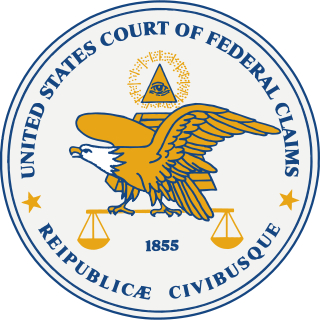Related Research Articles
Arbitration, in the context of the law of the United States, is a form of alternative dispute resolution. Specifically, arbitration is an alternative to litigation through which the parties to a dispute agree to submit their respective evidence and legal arguments to a third party for resolution. In practice, arbitration is generally used as a substitute for litigation. In some contexts, an arbitrator has been described as an umpire.

A non-disclosure agreement (NDA), also known as a confidentiality agreement (CA), confidential disclosure agreement (CDA), proprietary information agreement (PIA), or secrecy agreement (SA), is a legal contract or part of a contract between at least two parties that outlines confidential material, knowledge, or information that the parties wish to share with one another for certain purposes, but wish to restrict access to. Doctor–patient confidentiality, attorney–client privilege, priest–penitent privilege and bank–client confidentiality agreements are examples of NDAs, which are often not enshrined in a written contract between the parties.

Estoppel is a judicial device in common law legal systems whereby a court may prevent or "estop" a person from making assertions or from going back on their word; the person so prevented is said to be "estopped". Estoppel may prevent someone from bringing a particular claim. Legal doctrines of estoppel are based in both common law and equity. Estoppel is also a concept in international law.
In insurance, the insurance policy is a contract between the insurer and the policyholder, which determines the claims which the insurer is legally required to pay. In exchange for an initial payment, known as the premium, the insurer promises to pay for loss caused by perils covered under the policy language.
The parol evidence rule is a rule in common law jurisdictions limiting the kinds of evidence parties to a contract dispute can introduce when trying to determine the specific terms of a contract and precluding parties who have reduced their agreement to a final written document from later introducing other evidence, such as the content of oral discussions from earlier in the negotiation process, as evidence of a different intent as to the terms of the contract. The rule provides that "extrinsic evidence is inadmissible to vary a written contract". The term "parol" derives from the Anglo-Norman French parol or parole, meaning "word of mouth" or "verbal", and in medieval times referred to oral pleadings in a court case.

In contract law, a forum selection clause in a contract with a conflict of laws element allows the parties to agree that any disputes relating to that contract will be resolved in a specific forum. They usually operate in conjunction with a choice of law clause which determines the proper law of the relevant contract.
Statutory interpretation is the process by which courts interpret and apply legislation. Some amount of interpretation is often necessary when a case involves a statute. Sometimes the words of a statute have a plain and a straightforward meaning. But in many cases, there is some ambiguity in the words of the statute that must be resolved by the judge. To find the meanings of statutes, judges use various tools and methods of statutory interpretation, including traditional canons of statutory interpretation, legislative history, and purpose. In common law jurisdictions, the judiciary may apply rules of statutory interpretation both to legislation enacted by the legislature and to delegated legislation such as administrative agency regulations.
In contract law, an integration clause, merger clause, is a clause in a written contract which declares that contract to be the complete and final agreement between the parties. It is often placed at or towards the end of the contract. Any pre-contractual material which the parties wish to be incorporated into the contract need to be assembled with it or explicitly referred to in the contractual documentation.
Oil and gas law in the United States is the branch of law that pertains to the acquisition and ownership rights in oil and gas both under the soil before discovery and after its capture, and adjudication regarding those rights.
A contract is an agreement that specifies certain legally enforceable rights and obligations pertaining to two or more parties. A contract typically involves the transfer of goods, services, money, or a promise to transfer any of those at a future date, and the activities and intentions of the parties entering into a contract may be referred to as contracting. In the event of a breach of contract, the injured party may seek judicial remedies such as damages or equitable remedies such as specific performance or rescission. A binding agreement between actors in international law is known as a treaty.
Prima Paint Corp. v. Flood & Conklin Mfg. Co., 388 U.S. 395 (1967), is a United States Supreme Court decision that established what has become known as the "separability principle" in contracts with arbitration clauses. Following an appellate court ruling a decade earlier, it reads the 1925 Federal Arbitration Act (FAA) to require that any challenges to the enforceability of such a contract first be heard by an arbitrator, not a court, unless the claim is that the clause itself is unenforceable.
Contract law regulates the obligations established by agreement, whether express or implied, between private parties in the United States. The law of contracts varies from state to state; there is nationwide federal contract law in certain areas, such as contracts entered into pursuant to Federal Reclamation Law.
Interpreting contracts in English law is an area of English contract law, which concerns how the courts decide what an agreement means. It is settled law that the process is based on the objective view of a reasonable person, given the context in which the contracting parties made their agreement. This approach marks a break with previous a more rigid modes of interpretation before the 1970s, where courts paid closer attention to the formal expression of the parties' intentions and took more of a literal view of what they had said.
Intention to create legal relations, otherwise an "intention to be legally bound", is a doctrine used in contract law, particularly English contract law and related common law jurisdictions.
The purposive approach is an approach to statutory and constitutional interpretation under which common law courts interpret an enactment within the context of the law's purpose.

G.L. Christian and Associates v. United States is a 1963 United States Federal Acquisition Regulation (FAR) court case which has become known as the Christian Doctrine. The case held that standard clauses established by regulations may be considered as being in every Federal contract. Because the FAR is the law, and government contractors are presumed to be familiar with the FAR, a mandatory clause that expresses a significant or deeply ingrained strand of public procurement policy will be incorporated into a Government contract by operation of law, even if the parties intentionally omitted it.

Autoclenz Ltd v Belcher [2011] UKSC 41 is a landmark UK labour law and English contract law case decided by the Supreme Court of the United Kingdom, concerning the scope of statutory protection of rights for working individuals. It confirmed the view, also taken by the Court of Appeal, that the relative bargaining power of the parties must be taken into account when deciding whether a person counts as an employee, to get employment rights. As Lord Clarke said,
the relative bargaining power of the parties must be taken into account in deciding whether the terms of any written agreement in truth represent what was agreed and the true agreement will often have to be gleaned from all the circumstances of the case, of which the written agreement is only a part. This may be described as a purposive approach to the problem.
South African contract law is "essentially a modernized version of the Roman-Dutch law of contract", and is rooted in canon and Roman laws. In the broadest definition, a contract is an agreement two or more parties enter into with the serious intention of creating a legal obligation. Contract law provides a legal framework within which persons can transact business and exchange resources, secure in the knowledge that the law will uphold their agreements and, if necessary, enforce them. The law of contract underpins private enterprise in South Africa and regulates it in the interest of fair dealing.
The term course of dealing is defined in the Uniform Commercial Code as follows:
A "course of dealing" is a sequence of conduct concerning previous transactions between the parties to a particular transaction that is fairly to be regarded as establishing a common basis of understanding for interpreting their expressions and other conduct.

Arnold v Britton[2013] EWCA Civ 902 is an English contract law case on implied terms.
References
- ↑ Four Corners Rule definition
- ↑ Silverstein, Joshua M. (2021). "The Contract Interpretation Policy Debate: A Primer". Stanford Journal of Law, Business & Finance. 26: 222.
- ↑ KY Supreme Court 2007-CA-000498
- ↑ KY Supreme Court 1995-CA-001813
- ↑ KY Supreme Court 1996-CA-000833
- ↑ Adkins v. State, 717 S.W.2d 363 (1986) Texas
- ↑ State v. Barrilleaux, 620 So. 2d 1317 (1993) Louisiana
- ↑ Pursue Energy Corp. v. Perkins, 558 So. 2d 349 (1990) Mississippi